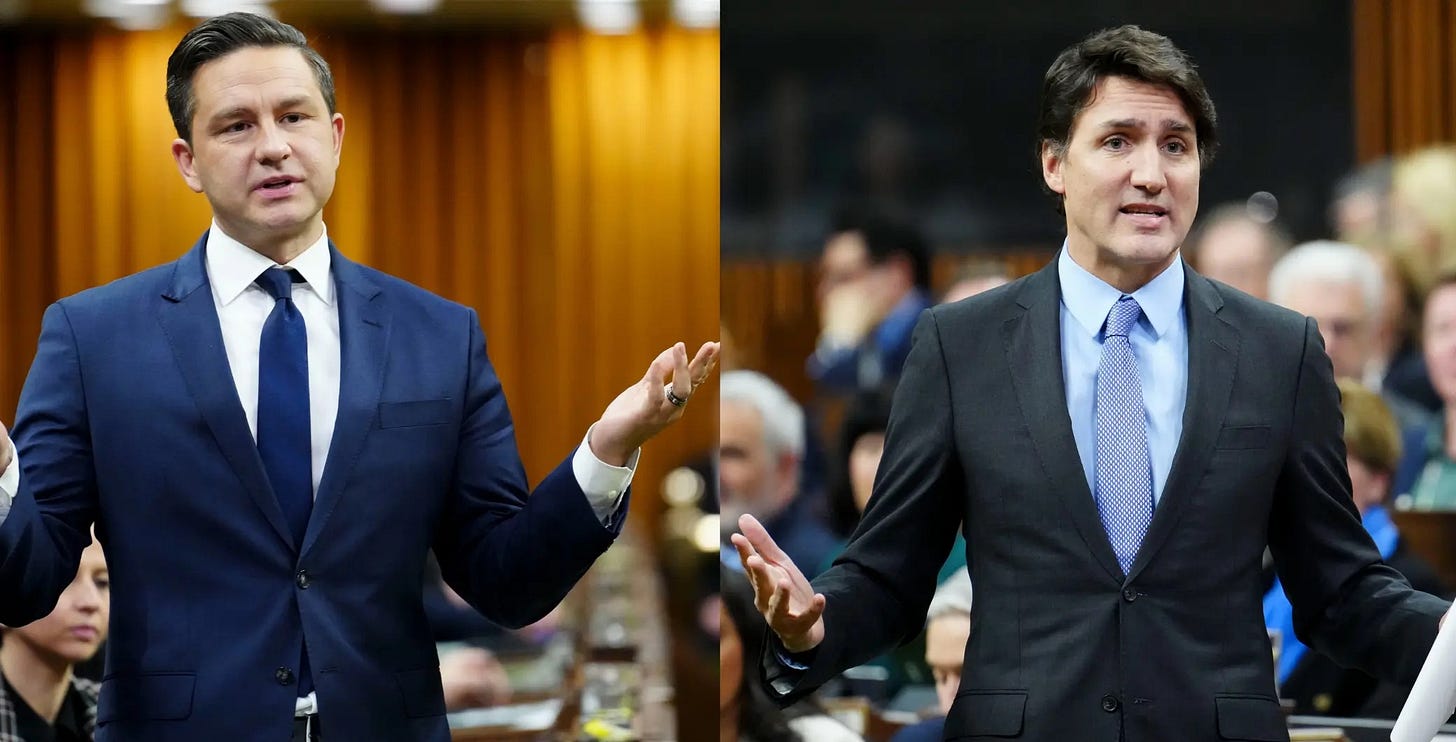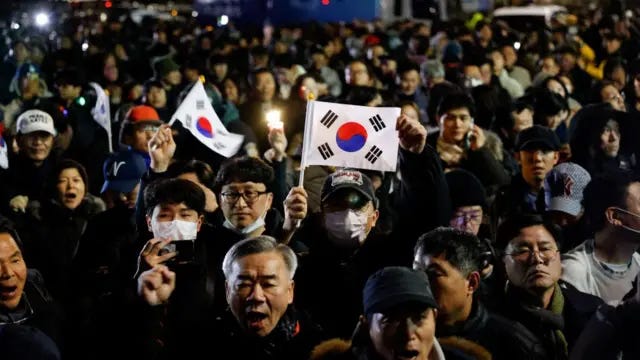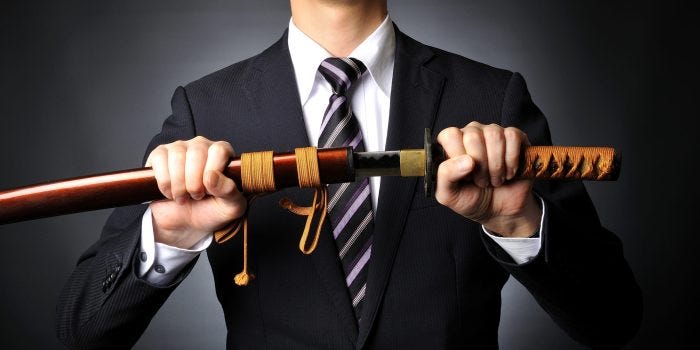Good morning, It’s Wednesday, December 4th. In today’s news, Emo’s Mayor refuses to pay a $5,000 fine or attend mandated LGBTQ training, Liberals face multiple confidence calls, the CBC fumbles a story on foreign interference, South Korea’s President declares martial law, and much more.
First time reading the daily blend? Sign up here.
Woke Tyranny in Emo: Mayor Refuses to Pay $5,000 Fine or Attend LGBTQ Training
The woke activists posing as politicians have forgotten the meaning of "live and let live." This principle once defined the LGB movement, which was a call for dignity and equal treatment. Yet, somewhere along the way, the fight shifted from seeking acceptance to demanding celebration—and punishing those who refuse.
Mayor Harold McQuaker of Emo Township embodies the necessary resistance to this troubling shift. Fined $5,000 by the Human Rights Tribunal of Ontario (HRTO) and ordered to undergo "re-education," McQuaker has drawn a line in the sand. Refusing to pay or submit to ideological training, he called the penalty "extortion" and stood firm in his decision not to fly a Pride flag at his town hall. His stance represents a rare but crucial kind of leadership—one willing to challenge creeping authoritarianism cloaked in progressive ideals.
Historically, the Lesbian and Gay movement sought inclusion, not domination. It was about creating a world where sexuality did not define one’s identity or dictate how others treated them. Today, the LGBTQ pride movement demands not just acceptance but celebration—backed by fines and mandatory training for dissenters.
This evolution betrays the original ethos of "live and let live." True equality doesn’t require forced participation in someone else’s beliefs or celebrations. It demands tolerance, not coercion. McQuaker’s case highlights a cultural shift that equates disagreement with hate and enforces ideological compliance through punitive measures. This isn’t about hate or bigotry; it’s about reclaiming the right to disagree and upholding the principles of individual freedom and mutual respect.
Canada must reject the tyranny of forced celebration. Leaders like McQuaker remind us of the value of standing firm, even when it’s unpopular, in defense of liberty. It’s time to say: no more.
Besieged Liberals to Face Multiple Confidence Motions
The Liberals, led by Prime Minister Justin Trudeau, are under increasing pressure in the House of Commons as they face three confidence motions brought forward by the Conservatives. This development reflects mounting public frustration with Trudeau's leadership, particularly after nine years of Liberal governance, which opposition parties blame for Canada's economic struggles and unpopular policies like the carbon tax.
Conservative House Leader Andrew Scheer framed the motions as an opportunity to address "Canadians’ suffering" and accused NDP Leader Jagmeet Singh of prioritizing his alliance with Trudeau over the interests of ordinary Canadians. Notably, the Conservatives even leveraged Singh’s own criticisms of the Liberals in their motion. While the Bloc Québécois has aligned with the Conservatives, the NDP remains reluctant to support the motions, effectively keeping Trudeau's government afloat for now.
Meanwhile, the Liberals have been accused of using procedural tactics to delay opposition motions, but the Speaker's recent ruling has granted the opposition four days to push their agenda. This comes against a backdrop of a gridlocked Parliament that has struggled to pass crucial budgetary measures, which include funding for dental care, Ukraine aid, and the military.
Despite the fiery rhetoric and political maneuvering, the likelihood of these confidence motions toppling the government remains low, given the NDP's history of siding with the Liberals. As a result, while the tension highlights growing dissatisfaction with the Trudeau government, an election seems improbable at this time. Instead, this episode underscores the widening rift between the government and its critics in Parliament. Source
Activist Sources and Anonymous Claims: The CBC’s Fumbled Patrick Brown Story
The CBC recently published a report alleging that agents of the Indian government interfered in Patrick Brown’s 2022 campaign for the leadership of the Conservative Party of Canada. According to the article, Indian consular officials pressured campaign workers and Conservative MP Michelle Rempel Garner to withdraw their support for Brown. It also claims Brown was barred from attending certain community events due to his ties to the Sikh community.
While these allegations appear serious, the CBC’s reporting raises significant questions about its credibility. The article relies heavily on anonymous sources, offering little tangible evidence to substantiate its claims. Michelle Rempel Garner, the only named individual implicated, categorically denies the allegations, describing them as “ridiculous” and reaffirming that her decisions were made independently.
The report’s reliance on Baaz News as a key source has drawn particular criticism. Alex Zoltan, a prominent commentator, highlights significant flaws in this choice. Baaz News, an activist outlet known for promoting Khalistani narratives, operates within an advocacy framework that aligns with specific ideological positions.
Zoltan also points to a glaring contradiction in the CBC’s narrative: Patrick Brown, the supposed victim of interference, didn’t even make it to the first round of voting in the Conservative leadership race. Brown was disqualified over campaign finance violations, a controversy entirely unrelated to the alleged interference. This disconnect undermines the article’s central premise and raises doubts about its overall validity.
At a time when foreign interference is a pressing issue, Zoltan argues that stories like this dilute the conversation. Reporting nothing burgers based on anonymous sources and questionable evidence not only distracts from genuine threats but also erodes public trust in media institutions. The CBC has continually proven it has no interest in correcting its ways and must be defunded.
South Korea’s President Declares Martial Law, Repealed After Parliamentary Standoff and Mass Protests
South Korea briefly faced its most significant democratic crisis since 1980 as President Yoon Suk Yeol declared martial law, citing threats from "anti-state forces." However, the move was overwhelmingly rejected by parliament, which swiftly repealed the order amid protests. The bipartisan opposition—including Yoon's own conservative party—condemned the president's actions as authoritarian, drawing comparisons to South Korea's pre-democratic era.
Protesters and lawmakers criticized Yoon’s move as a desperate response to mounting scandals and political challenges, including his inability to push through key legislative priorities. The situation, while resolved quickly, left Yoon's presidency severely weakened, with impeachment efforts looming. Although martial law has been lifted, the crisis has deepened political divisions and shaken confidence in the country’s leadership, making it unlikely for Yoon to recover politically. More
Anti-Israel Group Blockades Parliament Building
Activists from Independent Jewish Voices (IJV) staged a protest at the Confederation Building in Ottawa, demanding a two-way arms embargo on Israel and a ceasefire in its conflict with Hamas. The group, which represents a small anti-Zionist minority among Canadian Jews, sang religious songs during their sit-in, where several demonstrators, including Rabbi David Mivasair, voiced criticisms of Israel’s military actions. The Parliamentary Protective Service intervened, arresting 14 participants.
The protest also saw support from NDP MPs Heather McPherson and Matthew Green, who echoed calls for an arms embargo. However, the broader Canadian Jewish community overwhelmingly identifies as Zionist, with a 2023 York University survey reporting 91% support for a Jewish homeland in Israel. More
Ukraine Pushes for NATO Invite, Criticizes 30-Year-Old Security Deal - NATO Poised to Sidestep Request. More
Trump's Fentanyl Ultimatum Puts Canada's 'Super Labs' Under Microscope - More
Poll: Majority of Canadians Oppose Equity Hiring — More Than in the US - More
Israel Threatens to Expand War if Hezbollah Truce Collapses - More
Vietnam Court Rejects Real Estate Tycoon's Appeal, Orders Her to Pay Back $11 Billion USD or Face Death - More
Japanese Bank Executives Vow to Pay with Their Lives if Found Guilty of Irregularities
Shikoku Bank executives have taken an extraordinary step to assure clients of their integrity: pledging to commit seppuku (ritual suicide) if found guilty of financial misconduct such as embezzlement. This pledge, signed in blood by 23 top executives, including the bank's president, Miura, references a historic practice tied to honour codes of Japan's samurai era.
The bank’s unusual commitment, displayed on its website, echoes a similar pledge made by its predecessor, the Thirty-Seventh National Bank, at its founding in 1878. The declaration has sparked widespread reactions, ranging from admiration for its symbolic emphasis on accountability to disbelief at the extreme nature of the vow. It also contrasts starkly with perceptions of Western banking practices, where executives rarely face any accountability for financial mismanagement. More
Two Ontario Men Caught Trafficking Over $40 Million of Cocaine in US - More
Trump Vows to Block Japanese Steelmaker From $15 Billion Buyout of US Steel, Pledges Tax Incentives and Tariffs - More
NASA Is Seeking Ideas for Rescuing an Astronaut from the Moon
NASA has launched a challenge called “South Pole Safety: Designing the NASA Lunar Rescue System” to find innovative solutions for rescuing incapacitated astronauts during Artemis missions. Participants are tasked with designing a system capable of moving a fully suited astronaut at least 2 kilometres up a 20-degree slope in the harsh conditions of the lunar south pole, without relying on a rover.
Key details include:
Prize pool: $45,000, with $20,000 for the first-place winner.
Deadline: Entries are open until January 23, 2025.
Challenges: The system must handle lunar gravity (1/6th of Earth’s), extreme temperatures ranging from -203°C to 54°C, sharp lunar regolith, and potential obstacles like craters and boulders.
Weight: The rescue system must move an astronaut weighing the equivalent of 125 lbs (57 kg) in lunar gravity, despite a full suit weighing 755 lbs on Earth.
Submissions are being accepted via the HeroX platform. More
The Blood of This Flying Mammal Might Help Humans Travel Through Interstellar Space - More
Tiger Woods Says He Has No Timetable for Return: 'I truly don’t know' - Woods pulled out of this week's Hero World Challenge after undergoing another procedure on his back. More
The NBA Cup Was Supposed to Be Exciting, But It Turned Into a Confusing Headache - More
‘Moana 2’ Is Biggest Debut Ever For Walt Disney Animation Studios at $221 Million in First Five Days - More
This (Real) Contest Challenges Scientists to Explain Their Research Through Interpretative Dance - Nothing says ‘objective science’ like the weirdest and most subjective form of dance.
Man Sentenced to Prison for Intentionally Getting Fat to Avoid Military Service
IT'S NATIONAL COOKIE DAY - You understand the mission.


















The mayor of Emo is my new hero. Good for him for standing up to the woke HRTO and activists.